The danger of civil war
The armed conflict in Sudan has entered its third week, with fierce fighting using heavy weapons causing hundreds of deaths and forcing tens of thousands to flee the country.
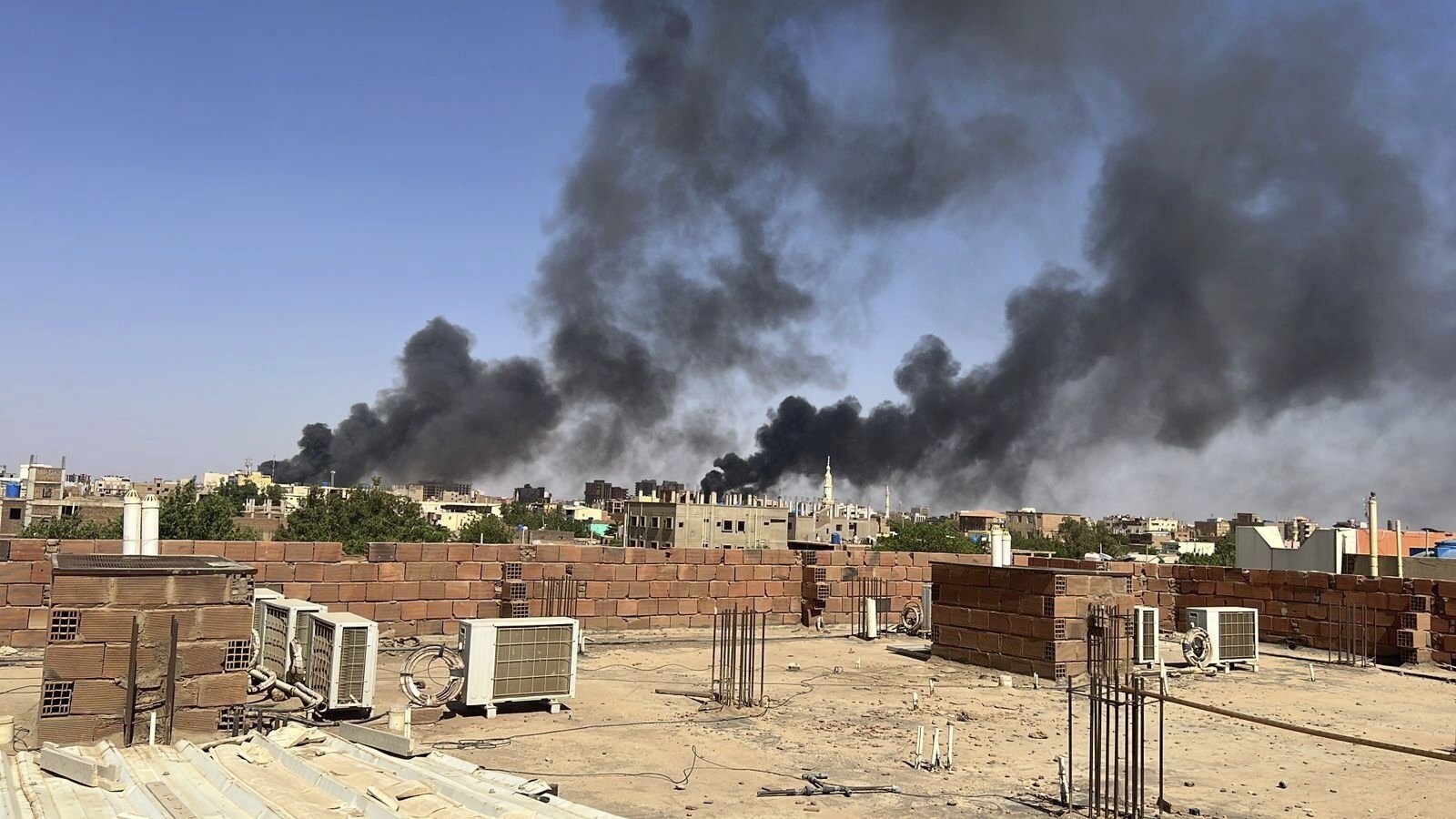
Smoke still rises in the capital Khartoum, Sudan, despite a ceasefire agreement signed between the warring parties. Photo: New York Times
The shootings mean that the prospects for reconciliation, democracy and the rule of law in this northeastern African country have been dashed. In other words, the hope of a peaceful future in Sudan, a country that has been engulfed in nearly two decades of civil war and military coups, has also become very remote.
There have been suggestions that the Wagner Group was the instigator of the conflict in Sudan. Some Western intelligence sources believe that Wagner has supplied weapons to the Rapid Support Forces (RSF) of Lieutenant General Mohamed Hamdan Dagalo, better known as Hemedti.
The view is based on the argument that Wagner, which is engaged in gold mining in Sudan in areas controlled by the RSF, would support this force in its struggle for power with the government army, led by Lieutenant General Abdel Fattah al-Burhan, who is in fact the head of both the army and the Sudanese military government.
But at its core, the conflict is the result of decades of unresolved issues in Sudan, including competition for resources and a desire for control of the country, according to Marina Peter, founder and head of the Sudan and South Sudan Forum.
Ms. Petrer said that the internal conflicts in Sudan will be difficult to influence from the outside. Because Lieutenant General Abdel Fattah al-Burhan, head of the Sudanese national army, and Lieutenant General Mohamed Hamdan Dagalo, leader of the RSF, have no intention of sharing power or moving towards a transfer of power to civilian forces.
Although they were once allies and both claimed to lead their countries down the path of democracy, in reality, these two military leaders harbored authoritarian intentions, like the dictator they had overthrown before: former President Omar al-Bashir.
“This conflict is a fight between two partners in the same crime, fighting for the spoils of their crimes. Neither Al-Burhan nor Hemedti are in the country’s interest,” Amgad Fareid, a former adviser to Sudanese Prime Minister Abdalla Hamdok, said in a recent blog post. And the “crime” Fareid was referring to was the October 25, 2021 coup, when Abdel Fattah al-Burhan and Hemedti joined forces to overthrow Mr. Hamdok.
Sudanese frustration
The question now arises: Did Western countries - which had previously been trying to exert influence in Sudan to promote democratic reforms in the country - react strongly enough to prevent a military conflict or at least prevent the war in Sudan from escalating?
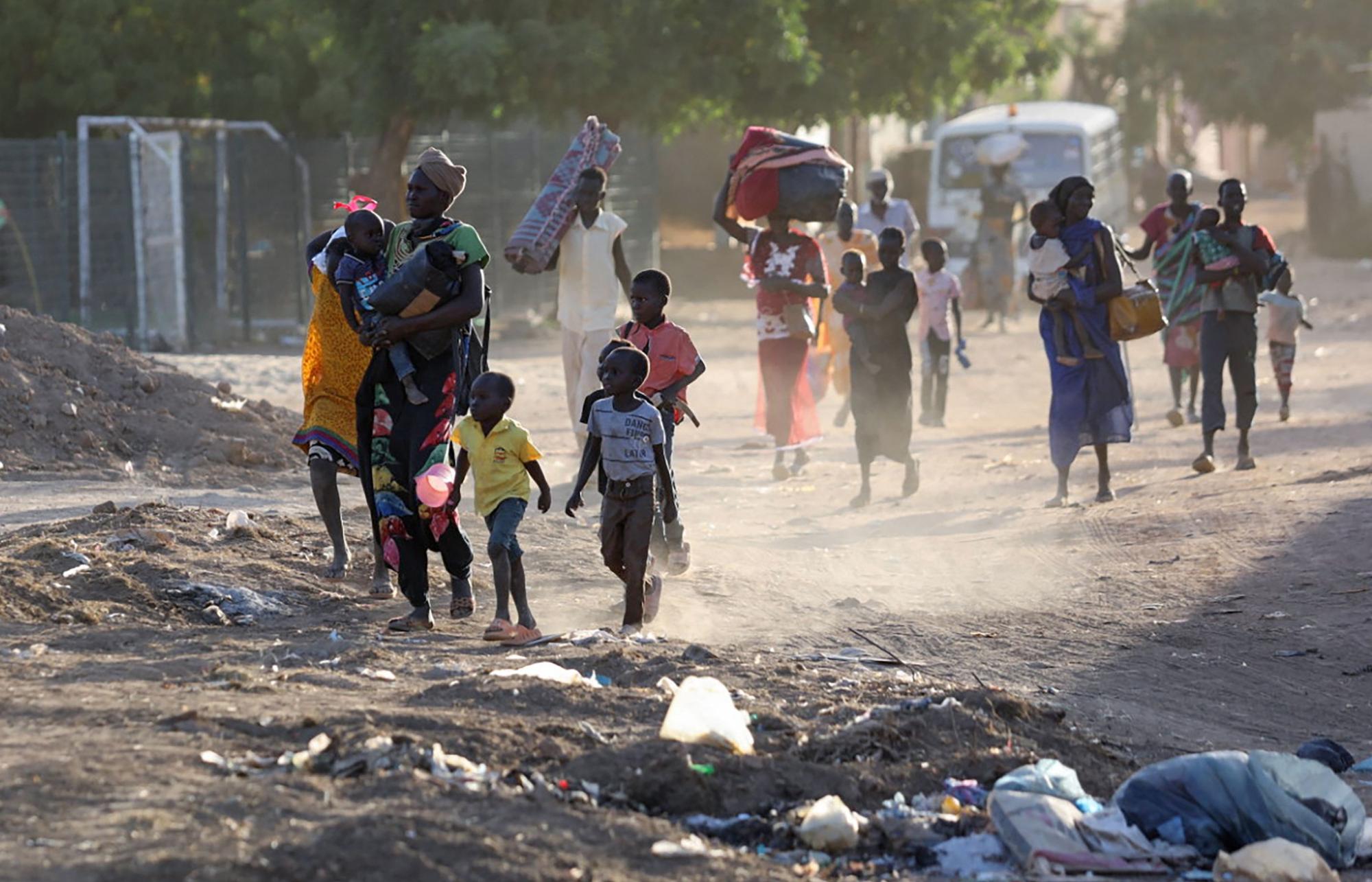
Tens of thousands of Sudanese people are seeking refuge due to the escalating armed conflict. Photo: FT
In this respect, Sudanese seem to be very disappointed. Prominent Sudanese political activist Hamid Khalafalla recently expressed on Twitter that Western efforts have been too little to make the two warring sides in Sudan listen. For example, the ceasefire agreement reached under international pressure in late April has been violated too easily.
On his personal Twitter, Hamid Khalafalla wondered why Sudanese generals had to comply with the ceasefire when they knew that the military coup 18 months ago in Sudan, the coup carried out by Abdel Fattah al-Burhan and Hemedti to overthrow former Prime Minister Abdalla Hamdok, had gone largely unpunished by the West?
Foreign Policy magazine has also criticized the West's approach to Sudan in recent years.
The paper’s analysis asserts that the US and the West have put too much faith in the words of the two generals, words that seem designed to “lull” major powers to sleep. That is why the US still insists on calling the transition in Sudan “civilian-led”. And according to Foreign Policy, that is a misleading description because the political transition in Sudan “is not civilian-led at all”.
Marina Peter, from the Sudan and South Sudan Forum, also said that Western countries made mistakes after 2019, the year former president Omar al-Bashir was ousted. “The most serious mistake was not allowing the majority of the population to participate in political discussions and negotiations,” Peter said in an interview with Germany’s DW.
“Sudan activists and foreign experts have repeatedly warned that the military, especially Hemedti, cannot be trusted and that relying on him will make a lasting peace solution impossible,” said Ms. Peter.
What chance for peace in Sudan?
“The major powers involved in the negotiations – the US and the UK, as well as the UN, the African Union and the Arab community – made a serious miscalculation in believing that both generals would accept agreements that would put Sudan on the path to democracy,” said Cameron Hudson, a former CIA analyst and now an Africa expert at the Center for Strategic and International Studies. “The reality is that both were willing to plunge the country into conflict, as long as it helped them seize power.”
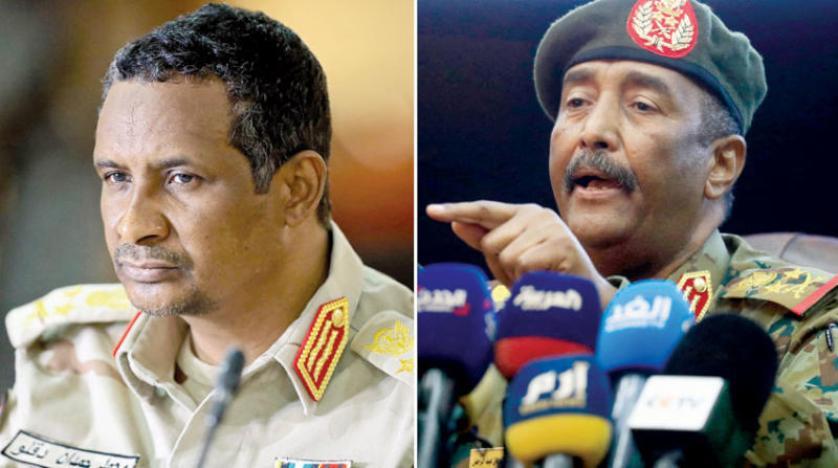
The two military commanders leading the warring sides in Sudan today, Mohamed Hamdan Dagalo (left) and Abdel Fattah al-Burhan (right). Photo: Asharg Al-Awsat
In a commentary in the New York Times, Ms. Jacqueline Burns - former adviser to the US special envoy to Sudan and South Sudan, and senior policy analyst at the non-profit organization RAND Corporation, also said that the war in Sudan was the fault of the West.
“Conflict resolution that focuses on signing agreements to divide power among armed groups—no matter how many provisions for political reform it includes—rarely leads to lasting peace. And it doesn’t even lead to short-term peace. The consequences of such misguided efforts, in the ruins of Khartoum, are plain to see,” writes Jacqueline Burns.
Therefore, according to experts, if influential international partners - in this case the African Union and the United Nations, the United States, the EU and others - continue to legitimize armed groups as the only valid voices that need to be heard, there is little chance of peace in Sudan.
Quang Anh
Source


![[Photo] 12th grade students say goodbye at the closing ceremony, preparing to embark on a new journey](https://vphoto.vietnam.vn/thumb/1200x675/vietnam/resource/IMAGE/2025/5/28/42ac3d300d214e7b8db4a03feeed3f6a)

![[Photo] Prime Minister Pham Minh Chinh receives a bipartisan delegation of US House of Representatives](https://vphoto.vietnam.vn/thumb/1200x675/vietnam/resource/IMAGE/2025/5/28/468e61546b664d3f98dc75f6a3c2c880)
![[Photo] Vietnamese and Hungarian leaders attend the opening of the exhibition by photographer Bozoky Dezso](https://vphoto.vietnam.vn/thumb/1200x675/vietnam/resource/IMAGE/2025/5/28/b478be84f13042aebc74e077c4756e4b)
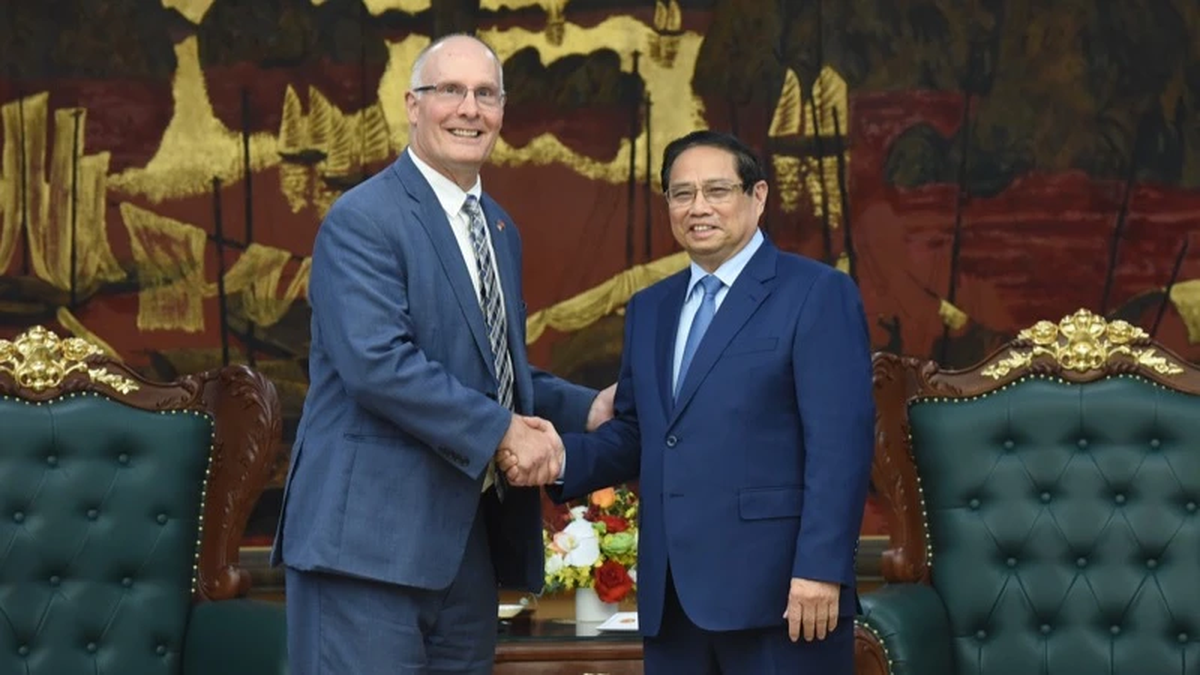
![[Photo] General Secretary To Lam works with the Central Policy and Strategy Committee](https://vphoto.vietnam.vn/thumb/1200x675/vietnam/resource/IMAGE/2025/5/28/7b31a656d8a148d4b7e7ca66463a6894)
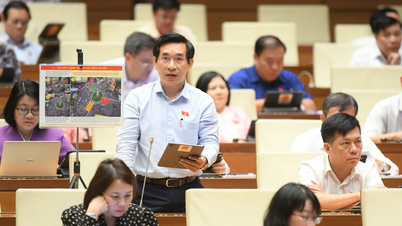




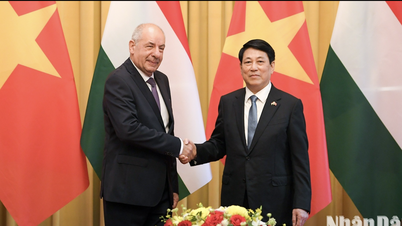

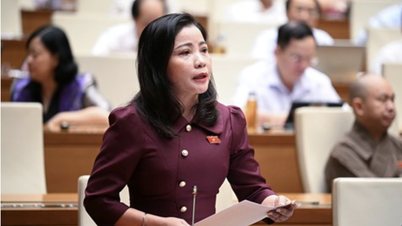

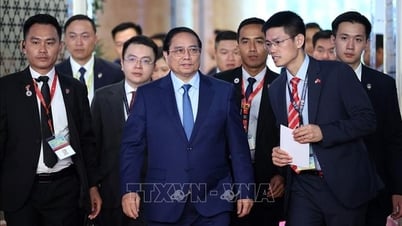









































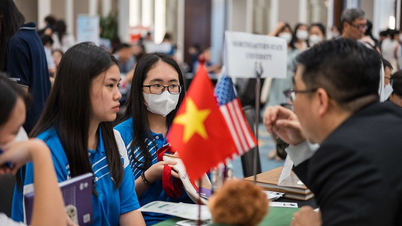









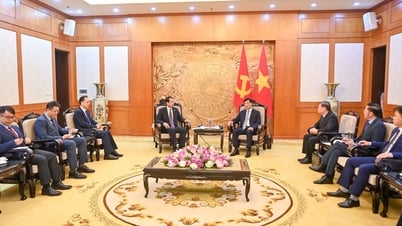





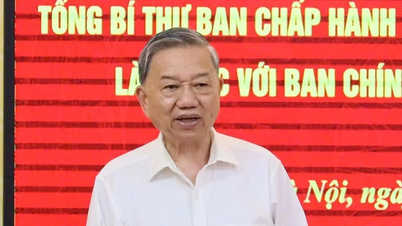

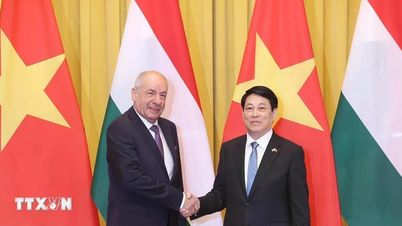
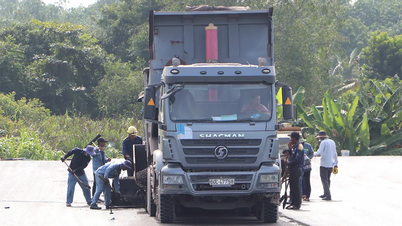


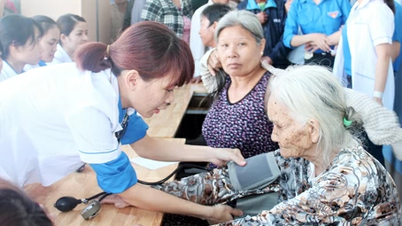
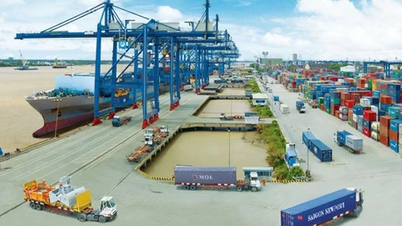








Comment (0)